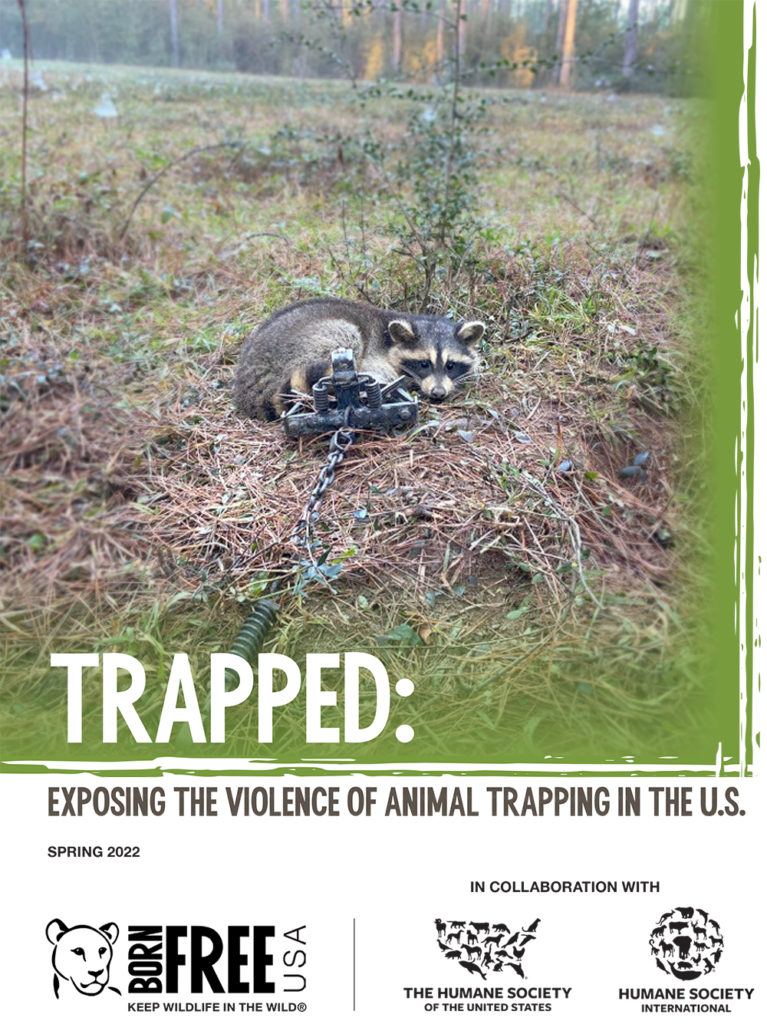Born Free USA & HSI Release New Undercover Investigation Revealing The Shocking Brutality Of Fur Trapping In The United States
Born Free USA, in collaboration with Humane Society International, released the results of its shocking new undercover investigation exposing the cruelty of animal trapping in the United States for the fur trade. The move comes at a critical time amidst concerns that the UK government could be considering abandoning a ban on cruel fur imports.
‘Trapped: Exposing the Violence of Animal Trapping in the U.S.,’ follows an undercover investigator who accompanied three trappers in the field in Iowa in November and December of 2021, to witness how animals are trapped and killed for fur and so-called “recreation.” Prior to that, he had attended the National Trappers Association convention in July and a state-sponsored “Trappers Education Course” in November.

“Trapped: Exposing the Violence of Trapping in the U.S. has two objectives: to document the reality of trapping, where sentient beings are brutally exploited, and lives are ended with such casual disregard and lack of compassion. The goal of the investigation is to accelerate measures to bring an end to this cruel practice and its associated activities, including selling the skins of trapped animals for profit,” explained Will Travers OBE, co-founder and president of Born Free.
As noted by Travers, this investigation demonstrates that trapping most-often involves extreme animal suffering. The cruelties exposed contradict claims of fur industry certification plans such as Furmark, the new global certification and traceability system that falsely maintains to guarantee animal welfare and environmental standards.
“As a species, we have done many things of which we can be justifiably proud. But, not when it comes to trapping and the fur trade. This archaic throwback to the past is well beyond its sell-by date and is a stain on our humanity. It is time we evolved. We implore lawmakers in the U.K., the U.S., and beyond, to take swift action to call time on trapping,” concluded Travers.

The findings of the investigation are harrowing and reveal the inherent cruelty of trapping. The sickening video and audio evidence captured includes:
-
Trapped raccoons and bludgeoning them with a baseball bat causing protracted death.
-
A trapper standing on the neck of a raccoon after the animal has been beaten with a bat.
-
Animals being thrown in the back of a pickup truck after being bludgeoned without confirmation of death. One raccoon was later found to still be alive and was hit multiple times again with the bat.
-
A dead fox in a leghold trap who had struggled so hard to free himself that his leg had snapped clean through. The fox had likely been killed by coyotes as he was unable to defend himself or run away.
-
The bloody toe of a coyote torn off and left in the jaws of a trap during the animal’s escape. The trapper added the toe to his grisly souvenir collection of other previously retrieved toes, displayed on his truck dashboard.
-
Photographic evidence of a dead cat among the bodies of wild animal trapping victims, demonstrating that traps are also dangerous and deadly to non-targeted animals, including companion animals.
-
A representative from the Department of Natural Resources volunteering information on loopholes in trapping laws, and trainers on a state sponsored education course laughing as they talk about illegal practices.
“This investigation provides a graphic account of the casual disregard for animal suffering that underpins the whole fur trade. As if it’s not enough to be caught for hours or even days in torturous traps that should belong only in horror films, the animals we filmed also endured protracted and violent deaths, being repeatedly bludgeoned and left to suffer, all to be skinned and sold for fur fashion,” Claire Bass, executive director of Humane Society International/UK, said in a statement. “For as long as the UK continues to import and sell fur from animals caught in the wild or bred on factory fur farms, we remain complicit in this cruelty.”
Trapping animals for fur with leghold traps has been banned in the UK for more than sixty years, as well as being banned or heavily restricted in 108 countries worldwide. Fur farming has been banned across the UK since 2003. Despite this, in a clear double standard, the UK has imported more than £850 million in fur from countries including Finland, Italy, Poland, China, and the United States. In the past decade, 2011 to 2020, the UK has imported more than £20 million in fur, both farmed and trapped, from the U.S. according to the HMRC.
Banning fur imports commands enormous public support. Latest YouGov polls indicate that 73% of Brits support a fur sales ban, with 74% of Conservative voters wanting the ban, up from 64% in 2018. Furthermore, 63% of Brits think the government should increase its level of action for animal protection. A ban had been set to be included in the upcoming Animals Abroad Bill, but following opposition from some cabinet members, the government is believed to be considering abandoning it, along with a ban on imports of foie gras.
You can help all animals and our planet by choosing compassion on your plate and in your glass. #GoVeg




